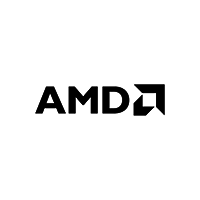
Description
WHAT YOU DO AT AMD CHANGES EVERYTHING
We care deeply about transforming lives with AMD technology to enrich our industry, our communities, and the world. Our mission is to build great products that accelerate next-generation computing experiences – the building blocks for the data center, artificial intelligence, PCs, gaming and embedded. Underpinning our mission is the AMD culture. We push the limits of innovation to solve the world's most important challenges. We strive for execution excellence while being direct, humble, collaborative, and inclusive of diverse perspectives.
AMD together we advance_
MTS SOFTWARE DEVELOPMENT ENGINEER – SGLang
THE ROLE:
As a core member of the team, you will play a pivotal role in optimizing and developing deep learning frameworks for AMD GPUs. Your work will be instrumental in enhancing GPU kernel performance, accelerating deep learning models, and enabling training and inference at scale across multi-GPU and multi-node systems. You will collaborate across internal GPU software teams and engage with open-source communities to integrate cutting-edge compiler technologies and drive upstream contributions that benefit AMD's AI software ecosystem.
THE PERSON:
Skilled engineer with strong technical and analytical expertise in C++ development within Linux environments. The ideal candidate will thrive in both collaborative team settings and independent work, with the ability to define goals, manage development efforts, and deliver high-quality solutions. Strong problem-solving skills, a proactive approach, and a keen understanding of software engineering best practices are essential.
KEY RESPONSIBILITIES:
Optimize Deep Learning Frameworks: Enhance performance of frameworks like TensorFlow, PyTorch, and SGLang on AMD GPUs via upstream contributions in open-source repositories.
Develop and Optimize Deep Learning Models: Profile and tune large-scale training and inference models for optimal performance on AMD hardware.
GPU Kernel Development: Design, implement, and optimize high-performance GPU kernels using HIP, Triton, or other relevant tools for AI operator efficiency.
Collaborate with GPU Library and Compiler Teams: Work closely with internal compiler and GPU math library teams to integrate and align kernel-level optimizations with full-stack performance goals.
Contribute to SGLang Development: Support optimization, feature development, and scaling of the SGLang LLM framework across AMD GPU platforms.
Distributed System Optimization: Tune and scale performance across both multi-GPU (scale-up) and multi-node (scale-out) environments, including inference parallelism and collective communication strategies.
Graph Compiler Integration: Integrate and optimize runtime execution through graph compilers such as XLA, TorchDynamo, or custom pipelines.
Open-Source Collaboration: Partner with external maintainers to understand framework needs, propose optimizations, and upstream contributions effectively.
Apply Engineering Best Practices: Leverage modern software engineering practices in debugging, profiling, test-driven development, and CI integration.
PREFERRED EXPERIENCE:
Strong Programming Skills: Proficient in C++ and/or Python, with demonstrated ability to debug, profile, and optimize performance-critical code.
SGLang and LLM Optimization: Hands-on experience with SGLang or similar LLM inference frameworks is highly preferred.
Compiler and GPU Architecture Knowledge: Background in compiler design or familiarity with technologies like LLVM, MLIR, or ROCm is a plus.
Heterogeneous System Workloads: Experience running and scaling workloads on large-scale, heterogeneous clusters (CPU + GPU) using distributed training or inference strategies.
AI Framework Integration: Experience contributing to or integrating optimizations into deep learning frameworks such as PyTorch or TensorFlow.
GPU Computing: Working knowledge of HIP, CUDA, or other GPU programming models; experience with GCN/CDNA architecture preferred.
ACADEMIC CREDENTIALS:
Bachelor's and/or Master's Degree in Computer Science, Computer Engineering, Electrical Engineering, or a related field.
3+ years of professional experience in technical software development, with a focus on GPU optimization, performance engineering, and framework development.
LOCATION:
Taipei
#LI-VC1
Benefits offered are described: AMD benefits at a glance.
AMD does not accept unsolicited resumes from headhunters, recruitment agencies, or fee-based recruitment services. AMD and its subsidiaries are equal opportunity, inclusive employers and will consider all applicants without regard to age, ancestry, color, marital status, medical condition, mental or physical disability, national origin, race, religion, political and/or third-party affiliation, sex, pregnancy, sexual orientation, gender identity, military or veteran status, or any other characteristic protected by law. We encourage applications from all qualified candidates and will accommodate applicants' needs under the respective laws throughout all stages of the recruitment and selection process.
Apply on company website

